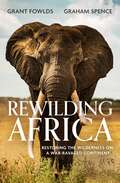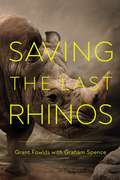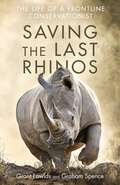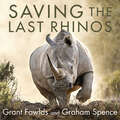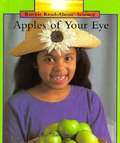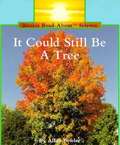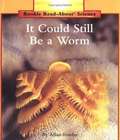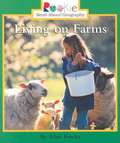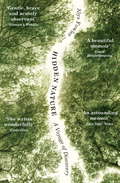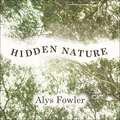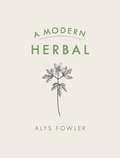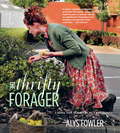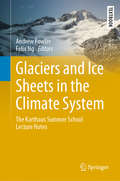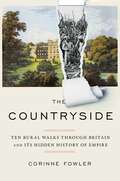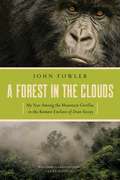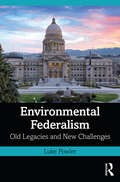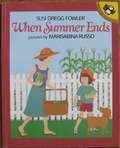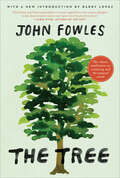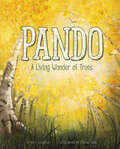- Table View
- List View
Rewilding Africa: Restoring the Wilderness on a War-ravaged Continent
by Grant Fowlds Graham SpenceConservationist Grant Fowlds lives to save and protect Africa's rhinos, elephants and other iconic wildlife, to preserve their habitats, to increase their range and bring back the animals where they have been decimated by decades of war, as in Angola, Mozambique and the Democratic Republic of the Congo. This vivid account of his work tells of a fellow conservationist tragically killed by the elephants he was seeking to save and a face-off with poachers, impoverished rural people exploited by rapacious local businessmen. Fowlds describes the impact of the Covid pandemic on conservation efforts, the vital wildlife tourism that sustains these and rural communities; and tells of conservationists' efforts to support people through the crisis. Lockdowns may have brought a welcome lull in rhino and other poaching, but also brought precious tourism to a standstill. He shows how the pandemic has highlighted the danger to the world of the illicit trade in endangered wildlife, some of it sold in 'wet markets', where pathogens incubate and spread. He describes a restoration project of apartheid-era, ex-South African soldiers seeking to make reparations in Angola, engulfed for many years in a profoundly damaging civil war, which drew in outside forces, from Cuba, Russia and South Africa, with a catastophic impact on that country's wildlife. Those who fund conservation, whether in the US, Zambia or South Africa itself, are of vital importance to efforts to conserve and rewild: some supposed angel-investors turn out to be not what they had appeared, some are thwarted in their efforts, but others are open-hearted and generous in the extreme, which makes their sudden, unexpected death an even greater tragedy. A passionate desire to conserve nature has also brought conservationists previously active in far-off Venezuela to southern Africa. Fowlds describes fraught meetings to negotiate the coexistence of wildlife and rural communities. There are vivid accounts of the skilled and dangerous work of using helicopters to keep wildebeest, carrying disease, and cattle apart, and to keep elephants from damaging communal land and eating crops such as sugar cane. He tells of a project to restore Africa's previously vast herds of elephants, particularly the famed 'tuskers', with their unusually large tusks, once prized and hunted almost to extinction. The range expansion that this entails is key to enabling Africa's iconic wildlife to survive, to preserving its wilderness and, in turn, helping humankind to survive.There is a heartening look at conservation efforts in Mozambique, a country scarred by years of war, which are starting to bear fruit, though just as a new ISIS insurgency creates havoc in the north of the country. What will humanity's relationship with nature be post-pandemic? Will we have begun to learn that by conserving iconic wildlife and their habitats we help to preserve and restore precious pockets of wilderness, which are so vital not only the survival of wildlife, but to our own survival on our one precious planet.
Rewilding Africa: Restoring the Wilderness on a War-ravaged Continent
by Grant Fowlds Graham SpenceConservationist Grant Fowlds lives to save and protect Africa's rhinos, elephants and other iconic wildlife, to preserve their habitats, to increase their range and bring back the animals where they have been decimated by decades of war, as in Angola, Mozambique and the Democratic Republic of the Congo. This vivid account of his work tells of a fellow conservationist tragically killed by the elephants he was seeking to save and a face-off with poachers, impoverished rural people exploited by rapacious local businessmen. Fowlds describes the impact of the Covid pandemic on conservation efforts, the vital wildlife tourism that sustains these and rural communities; and tells of conservationists' efforts to support people through the crisis. Lockdowns may have brought a welcome lull in rhino and other poaching, but also brought precious tourism to a standstill. He shows how the pandemic has highlighted the danger to the world of the illicit trade in endangered wildlife, some of it sold in 'wet markets', where pathogens incubate and spread. He describes a restoration project of apartheid-era, ex-South African soldiers seeking to make reparations in Angola, engulfed for many years in a profoundly damaging civil war, which drew in outside forces, from Cuba, Russia and South Africa, with a catastophic impact on that country's wildlife. Those who fund conservation, whether in the US, Zambia or South Africa itself, are of vital importance to efforts to conserve and rewild: some supposed angel-investors turn out to be not what they had appeared, some are thwarted in their efforts, but others are open-hearted and generous in the extreme, which makes their sudden, unexpected death an even greater tragedy. A passionate desire to conserve nature has also brought conservationists previously active in far-off Venezuela to southern Africa. Fowlds describes fraught meetings to negotiate the coexistence of wildlife and rural communities. There are vivid accounts of the skilled and dangerous work of using helicopters to keep wildebeest, carrying disease, and cattle apart, and to keep elephants from damaging communal land and eating crops such as sugar cane. He tells of a project to restore Africa's previously vast herds of elephants, particularly the famed 'tuskers', with their unusually large tusks, once prized and hunted almost to extinction. The range expansion that this entails is key to enabling Africa's iconic wildlife to survive, to preserving its wilderness and, in turn, helping humankind to survive.There is a heartening look at conservation efforts in Mozambique, a country scarred by years of war, which are starting to bear fruit, though just as a new ISIS insurgency creates havoc in the north of the country. What will humanity's relationship with nature be post-pandemic? Will we have begun to learn that by conserving iconic wildlife and their habitats we help to preserve and restore precious pockets of wilderness, which are so vital not only the survival of wildlife, but to our own survival on our one precious planet.
Saving the Last Rhinos: The Life Of A Frontline Conservationist
by Grant Fowlds Graham SpenceThe remarkable story of Grant Fowlds, who has dedicated his life to saving the imperiled rhinos, vividly told with Graham Spence, co-author of the bestselling The Elephant Whisperer.What would drive a man to &‘smuggle&’ rhino horn back into Africa at great risk to himself? This is just one of the situations Fowlds has put himself in as part of his ongoing fight against poaching, in order to prove a link between southern Africa and the illicit, lucrative trade in rhino horn in Vietnam. Shavings of rhino horn are sold as a snake-oil &“cures,&” but a rhino&’s horn has no magical, medicinal properties whatsoever. Yet it is for this that rhinoceroses are being killed at an escalating rate that puts the survival of the species in jeopardy. This corrupt, illegal war on wildlife has brought an iconic animal to the brink of extinction. Growing up on a farm in the eastern Cape of South Africa, Grant developed a deep love of nature, turning his back on hunting to focus on saving wildlife of all kinds and the environment that sustains both them and us. He is a passionate conservationist who puts himself on the front line of protecting rhinos in the wild—right now, against armed poachers—and in the long term, through his work with schoolchildren, communities, and policymakers.
Saving the Last Rhinos: The Life of a Frontline Conservationist
by Grant Fowlds Graham SpenceThe remarkable story of Grant Fowlds, a conservationist who has dedicated his life to saving the last rhinos, vividly told with the help of Graham Spence, co-author of the bestselling The Elephant Whisperer.'A terrific read . . . an outstanding book!'Gary Player and Vivienne Player'A truly heart-wrenching story, but a must-read for all who value our wild animals and their right to roam free. Grant Fowlds is a Zulu in a white skin and loves the people who hold the key to animal conservation. This is an intriguing true story that sends a clear message to the rest of the world.'Phil Liggett'Exceptionally readable - a fluid and captivating story . . . a swashbuckling tale.'Dr Dave Cooper, Rhinos Without Borders veterinarian, and Debbie Cooper of iSimangaliso Wetland Park'A rollicking true-life adventure that celebrates rhinos and people'Guy Rogers, Daily Herald'Truly awe-inspiring . . . Read this book. You will get a sense of Africa like never before, from a true African soul.'David S. Lee, Limbani in the blockbuster movie Black Panther'An excellent read . . . both sobering and uplifting'Moira Smith, General Manager Africa & Middle East, Goway TravelWhat would drive a man to 'smuggle' rhino horn back into Africa at great risk to himself? This is just one of the situations Grant Fowlds has put himself in as part of his ongoing fight against poaching, in order to prove a link between southern Africa and the illicit, lucrative trade in rhino horn in Vietnam.Shavings of rhino horn are sold as a snake-oil 'cure' for colds or impotence, but a rhino's horn has no magical, medicinal properties. It is for this that rhinoceroses are being killed at an escalating rate that puts the survival of the species in jeopardy. This corrupt, illegal war on wildlife has brought an iconic animal to the brink of extinction.Growing up on a farm in the Eastern Cape of South Africa, Grant developed a deep love of nature, turning his back on hunting to focus on saving wildlife of all kinds and the environment that sustains both them and us. He is a passionate conservationist who puts himself on the front line of protecting rhinos in the wild - right now, against armed poachers; but in the longer term, too, through his work with schoolchildren, communities and policymakers.We are most grateful to photographer Gerhard van der Westhuizen for the use of his stunning photograph on the cover of the book.
Saving the Last Rhinos: The Life of a Frontline Conservationist
by Grant Fowlds Graham Spence'A terrific read . . . an outstanding book!'Gary Player and Vivienne Player'A truly heart-wrenching story, but a must-read for all who value our wild animals and their right to roam free. Grant Fowlds is a Zulu in a white skin and loves the people who hold the key to animal conservation. This is an intriguing true story that sends a clear message to the rest of the world.'Phil Liggett'Exceptionally readable - a fluid and captivating story . . . a swashbuckling tale.'Dr Dave Cooper, Rhinos Without Borders veterinarian, and Debbie Cooper of iSimangaliso Wetland Park'A rollicking true-life adventure that celebrates rhinos and people'Guy Rogers, Daily Herald'Truly awe-inspiring . . . Read this book. You will get a sense of Africa like never before, from a true African soul.'David S. Lee, Limbani in the blockbuster movie Black Panther'An excellent read . . . both sobering and uplifting'Moira Smith, General Manager Africa & Middle East, Goway TravelWhat would drive a man to 'smuggle' rhino horn back into Africa at great risk to himself? This is just one of the situations Grant Fowlds has put himself in as part of his ongoing fight against poaching, in order to prove a link between southern Africa and the illicit, lucrative trade in rhino horn in Vietnam.Shavings of rhino horn are sold as a snake-oil 'cure' for colds or impotence, but a rhino's horn has no magical, medicinal properties. It is for this that rhinoceroses are being killed at an escalating rate that puts the survival of the species in jeopardy. This corrupt, illegal war on wildlife has brought an iconic animal to the brink of extinction.Growing up on a farm in the Eastern Cape of South Africa, Grant developed a deep love of nature, turning his back on hunting to focus on saving wildlife of all kinds and the environment that sustains both them and us. He is a passionate conservationist who puts himself on the front line of protecting rhinos in the wild - right now, against armed poachers; but in the longer term, too, through his work with schoolchildren, communities and policymakers.We are most grateful to photographer Gerhard van der Westhuizen for the use of his stunning photograph on the cover of the book.
Apples of Your Eye
by Allan FowlerDescribes all of the wonderful food you can make from the different varieties of apples.
Gator or Croc?
by Allan FowlerFrom friendly dolphins to giant pandas, from icebergs and glaciers to energy from the sun, from magnets to solids, liquids, and gases, Rookie Read-About Science is a natural addition to the primary-grade classroom with books that cover every part of the science curricula. Includes: animals, nature, scientific principles, the environment, weather, and much more!
How Do You Know It's Spring?
by Allan FowlerHow do you know it's spring? When leaves begin to grow on the trees... when the grass turns green again... when the first flowers bloom in your garden or in the park, then you know it's springtime!
It Could Still Be a Tree
by Allan FowlerThe book goes through many different species of trees and identifies their discerning qualities.
It Could Still Be A Flower
by Allan FowlerFrom friendly dolphins to giant pandas, from icebergs and glaciers to energy from the sun, from magnets to solids, liquids, and gases, Rookie Read-About Science is a natural addition to the primary-grade classroom with books that cover every part of the science curricula. Includes: animals, nature, scientific principles, the environment, weather, and much more!
It Could Still Be A Worm
by Allan FowlerFrom friendly dolphins to giant pandas, from icebergs and glaciers to energy from the sun, from magnets to solids, liquids, and gases, Rookie Read-About Science is a natural addition to the primary-grade classroom with books that cover every part of the science curricula. Includes: animals, nature, scientific principles, the environment, weather, and much more!
Living On Farms
by Allan FowlerA simple introduction to the history, animals, machines, products, and importance of farms. The popular Rookie Books expand their horizons - to all corners of the globe! With this series all about geography, emergent readers will take off on adventures to cities, nations, waterways, and habitats around the world. . . and right in their own backyards.
Hidden Nature: Wainwright Prize 2018 Shortlisted
by Alys Fowler'Fowler's moving memoir charts her experience of coming out as a gay woman, alongside her journey through Birmingham's canal networks, mapping both the waterways and the travails of her heart.' Observer'An emotional and compelling memoir, that left me inspired, both by her bravery in transforming her life, and by the unexpected beauty she finds along the way' Countryfile Magazine'Fowler beautifully exposes her emotional fragility while also celebrating the unloved nature of buddleia, herons and even the water rats who take refuge among the locks.' i paper'Fowler captures the beauty of the canal's dishevelled, neglected condition...' Times Literary Supplement'Thoughtful and heartbreakingly honest ...Beautiful' Press Association'An astounding memoir' Gay Star News'Hidden Nature is one of the most thrilling things I've read in a long time' Waterways World'She writes wonderfully about the species that have carved out a place for themselves amid the discarded shopping trolleys, condom packets and industrial waste' Guardian'This candid book is as much about mapping the heart as it is about mapping the paths of waterways. Lovely.' Simple Things'A beautiful memoir' Good Housekeeping'Gentle, brave and acutely observant' Woman's WeeklyLeaving her garden to the mercy of the slugs, the Guardian's award-winning writer Alys Fowler set out in an inflatable kayak to explore Birmingham's canal network, full of little-used waterways where huge pike skulk and kingfishers dart.Her book is about noticing the wild everywhere and what it means to see beauty where you least expect it. What happens when someone who has learned to observe her external world in such detail decides to examine her internal world with the same care?Beautifully written, honest and very moving, Hidden Nature is also the story of Alys Fowler's emotional journey and her coming out as a gay woman: above all, this book is about losing and finding, exploring familiar places and discovering unknown horizons.
Hidden Nature: A Voyage of Discovery
by Alys Fowler'This candid book is as much about mapping the heart as it is about mapping the paths of waterways. Lovely.' Simple Things'A beautiful memoir' Good HousekeepingLeaving her garden to the mercy of the slugs, award-winning writer Alys Fowler set out in an inflatable kayak to explore Birmingham's canal network, full of little-used waterways where huge pike skulk and kingfishers dart.Her book is about noticing the wild everywhere and what it means to see beauty where you least expect it. What happens when someone who has learned to observe her external world in such detail decides to examine her internal world with the same care?Beautifully written, honest and very moving, Hidden Nature is also the story of Alys Fowler's emotional journey: above all, this book is about losing and finding, exploring familiar places and discovering unknown horizons.
Hidden Nature: Wainwright Prize 2018 Shortlisted
by Alys FowlerLeaving her garden to the mercy of the slugs, award-winning writer Alys Fowler set out in an inflatable kayak to explore Birmingham's canal network, full of little-used waterways where huge pike skulk and kingfishers dart.Her book is about noticing the wild everywhere and what it means to see beauty where you least expect it. What happens when someone who has learned to observe her external world in such detail decides to examine her internal world with the same care?Beautifully written, honest and very moving, Hidden Nature is also the story of Alys Fowler's emotional journey: above all, this book is about losing and finding, exploring familiar places and discovering unknown horizons.(P)2017 Hodder & Stoughton Limited
A Modern Herbal
by Alys FowlerTHE BEST GARDENING BOOKS OF THE YEAR - GARDENS ILLUSTRATED'Informative and enthusiastic' i PaperPLANT-BASED MEDICINE FOR A CALMER, HEALTHIER LIFE It's easy to turn to the pharmacy when we're stressed, sick or feeling under the weather, but what if you turned to your garden instead?In this accessible and easy to use manual, horticultural expert, former Gardener's World presenter and Guardian columnist, Alys Fowler, shows how to take control of your health by adopting a more natural lifestyle. For thousands of years, people who had no access to clinical medicine knew how to boost their well-being by using the ingredients they found in plants. Herbs are the people's medicine; often freely available and abundant, they are ready and waiting to be plucked from around you to soothe and heal your body and mind. With guides for how to use and grow over 100 herbs - for example how to use fennel for indigestion, camomile for anxiety and nettle for hayfever - you'll soon be heading into the garden, rather than opening the medicine cabinet. Offering a fusion of botanical, practical, cultural and historical information, A Modern Herbal reveals how common herbs are the simple, cleansing way to better health and happiness.AS SEEN IN THE GUARDIAN'An important and accessible herbal for the 21st century . . . For anyone delving into herbs for the first time or those who want to broaden their herbal repertoire in the garden and home, this book is much needed' Gardens Illustrated
The Thrifty Forager: Living Off Your Local Landscape
by Alys FowlerAlys Fowler takes a fresh look at foraging, encouraging you to look closer to home, from the weeds in your garden to the trees in your street, rather than the fields and hedgerows of the countryside. Alys showcases her favourite edibles with a plant directory packed with useful information - photographic identification, plant description and tips on how to grow and how to eat it (including recipes such as fruit leathers and chutney) - that will give you the confidence to identify plants yourself. The book also features innovative ideas for eating your local landscape, from community gardens in Todmorden, UK to Edimental (edible ornamentals) gardens in Norway - this is a fast-growing, global phenomenon that is fun, environmentally friendly and thrifty!
The Thrifty Forager: Living off your local landscape
by Alys FowlerAlys Fowler takes a fresh look at foraging, encouraging you to look closer to home, from the weeds in your garden to the trees in your street, rather than the fields and hedgerows of the countryside. Alys showcases her favourite edibles with a plant directory packed with useful information - photographic identification, plant description and tips on how to grow and how to eat it (including recipes such as fruit leathers and chutney) - that will give you the confidence to identify plants yourself. The book also features innovative ideas for eating your local landscape, from community gardens in Todmorden, UK to Edimental (edible ornamentals) gardens in Norway - this is a fast-growing, global phenomenon that is fun, environmentally friendly and thrifty!
Glaciers and Ice Sheets in the Climate System: The Karthaus Summer School Lecture Notes (Springer Textbooks in Earth Sciences, Geography and Environment)
by Andrew Fowler Felix NgOur realisation of how profoundly glaciers and ice sheets respond to climate change and impact sea level and the environment has propelled their study to the forefront of Earth system science. Aspects of this multidisciplinary endeavour now constitute major areas of research. This book is named after the international summer school held annually in the beautiful alpine village of Karthaus, Northern Italy, and consists of twenty chapters based on lectures from the school. They cover theory, methods, and observations, and introduce readers to essential glaciological topics such as ice-flow dynamics, polar meteorology, mass balance, ice-core analysis, paleoclimatology, remote sensing and geophysical methods, glacial isostatic adjustment, modern and past glacial fluctuations, and ice sheet reconstruction. The chapters were written by thirty-four contributing authors who are leading international authorities in their fields. The book can be used as a graduate-level textbook for a university course, and as a valuable reference guide for practising glaciologists and climate scientists.
The Countryside: Ten Rural Walks Through Britain and Its Hidden History of Empire
by Corinne FowlerTen walks through idyllic scenery reveal the countryside&’s forgotten links to transatlantic slavery and colonialism—a work of accessible history that will transform our understanding of British landscapes and heritage.The green fields, rugged highlands, and rolling hills of England, Scotland, and Wales are commonly associated with adventure, romance, and seclusion as well as literary figures like Jane Austen and William Wordsworth. But in reality, many of these rural places—with their country houses, lakes, and shorelines—were profoundly changed by British colonial activity. Even hamlets and villages were affected by distant colonial events. Taking ten country walks, author Corinne Fowler explores the unique colonial dimensions of British agriculture, copper-mining, landownership, wool-making, coastal trade, and factory work in cotton mills. One route shows the links between English country houses and Indian colonization. Another explores banking history in Southern England and its link to slavery on Louisianan plantations. Other walks uncover the historical impact of sugar profits on the Scottish isles and 18th-century tobacco imports on an English coastal port. The history of these countryside locations—and the people who lived and worked in them—is closely bound up with colonial rule in far-away continents. Accompanying the author on her walks are a fascinating group of people—artists, musicians, and writers—with strong attachments to the landscapes featured in this book and family links to former British colonies like Barbados and Senegal. These companions illuminate the meaning of colonial history in local settings. Crucially, this is not just a history book but a compassionate reflection on the way we respond to sensitive, shared histories which link people across cultures, generations, and political divides.
A Forest in the Clouds: My Year Among The Mountain Gorillas In The Remote Enclave Of Dr. Dian Fossey
by John FowlerFor the first time, a riveting insider's account of the fascinating world of Dr. Dian Fossey’s mountain gorilla camp, telling the often-shocking story of the unraveling of Fossey’s Rwandan facility alongside adventures tracking mountain gorillas over hostile terrain, confronting aggressive silverbacks, and rehabilitating orphaned baby gorillas. In A Forest in the Clouds, John Fowler takes us into the world of Karisoke Research Center, the remote mountain gorilla camp of Dr. Dian Fossey, a few years prior to her gruesome murder. Drawn to the adventure and promise of learning the science of studying mountain gorillas amid the beauty of Central Africa’s cloud forest, Fowler soon learns the cold harsh realities of life inside Fossey’s enclave ten thousand feet up in the Virunga Volcanoes. Instead of the intrepid scientist he had admired in the pages of National Geographic, Fowler finds a chain-smoking, hard-drinking woman bullying her staff into submission. While pressures mount from powers beyond Karisoke in an effort to extricate Fossey from her domain of thirteen years, she brings new students in to serve her most pressing need—to hang on to the remote research camp that has become her mountain home. Increasingly bizarre behavior has targeted Fossey for extrication by an ever-growing group of detractors—from conservation and research organizations to the Rwandan government. Amid the turmoil, Fowler must abandon his own research assignments to assuage the troubled Fossey as she orders him on illegal treks across the border into Zaire, over volcanoes, in search of missing gorillas, and to serve as surrogate parent to an orphaned baby ape in preparation for its traumatic re-introduction into a wild gorilla group. This riveting story is the only first-person account from inside Dian Fossey’s beleaguered camp. Fowler must come to grips with his own aspirations, career objectives, and disappointments as he develops the physical endurance to keep up with mountain gorillas over volcanic terrain in icy downpours above ten thousand feet, only to be affronted by the frightening charges of indignant giant silverbacks or to be treed by aggressive forest buffalos. Back in camp, he must nurture the sensitivity and patience needed for the demands of rehabilitating an orphaned baby gorilla. A Forest in the Clouds takes the armchair adventurer on a journey into an extraordinary world that now only exists in the memories of the very few who knew it.
Environmental Federalism: Old Legacies and New Challenges
by Luke FowlerIn Environmental Federalism, Luke Fowler helps to refocus much-needed attention on the role of state governments in environmental policy creation and implementation in the United States. While the national government receives most of the attention when it comes to environmental policy, state governments play a vital role in protecting our natural resources. Legacy problems, like air, water, and land pollution, present one set of challenges for environmental federalism, but new problems emerging as a result of climate change further test the bounds of federal institutions. Examining patterns of pollution and case studies from the Clean Air Act and the Clean Water Act, Fowler explores two questions: has environmental federalism worked in managing legacy environmental problems, and can it work to manage climate change? In order to answer these questions, Fowler extends James Lester’s typology using political incentives and administrative capacities to identify four types of states (progressive, delayers, strugglers, and regressives) and assesses how they are linked to the success of federal environmental programs and conf licts in intergovernmental relations. He then considers what lessons we can learn from these programs and whether those lessons can help us better understand climate policy and multi-level institutions for environmental governance. This timely read will be a valuable contribution to students, researchers, and scholars of political science, public policy, public administration, and environmental studies.
When Summer Ends
by Susi Gregg FowlerAs a happy summer comes to a close, it's sometimes hard to remember that every season has its virtues. "When summer ends, I will cry and cry," a little girl tells her mother. But in the dialogue that follows, she and young readers are reminded of many excitements of other seasons. A warm, convincing picture book with brilliant witty pictures by Marisabina Russo.
The Tree: John Fowles
by John FowlesThe classic meditation on creativity and the natural world“For years I have carried this book. . . with me on travels to reread, ponder, envy. In prose of classic gravity, precision, and delicacy, Fowles addresses matters of final importance.” —W. S. Merwin, Los Angeles Times Book Review“The Tree is the fullest and finest exploration I’ve ever read of how the useless delights to be discovered in nature can ripen into the practice of art.” —Lewis Hyde, author of The GiftFirst published a generation ago, The Tree is renowned English novelist John Fowles's provocative meditation on the connection between the natural world and human creativity, and a powerful argument against taming the wild. In it, Fowles recounts his own childhood in England and describes how he rebelled against his Edwardian father’s obsession with the “quantifiable yield” of well-pruned fruit trees and came to prize instead the messy, purposeless beauty of nature left to its wildest.The Tree is an inspiring, even life-changing book, one that reaffirms our connection to nature and reminds us of the pleasure of getting lost, the merits of having no plan, and the wisdom of following one’s nose wherever it may lead—in life as much as in art.This special 30th anniversary edition includes an introduction by Barry Lopez.
Pando: A Living Wonder of Trees
by Author Kate Allen FoxPando is an inspiring tribute to a Utah grove of quaking Aspen trees connected by their roots to form one of the world's oldest and largest living things. Author Kate Allen Fox engages readers’ senses to help convey the vastness of Pando, the challenges it faces, and how we all can be part of the solution. With lyrical poetry, Fox summarizes the science, action, and compassion needed to save this wonder of nature.
